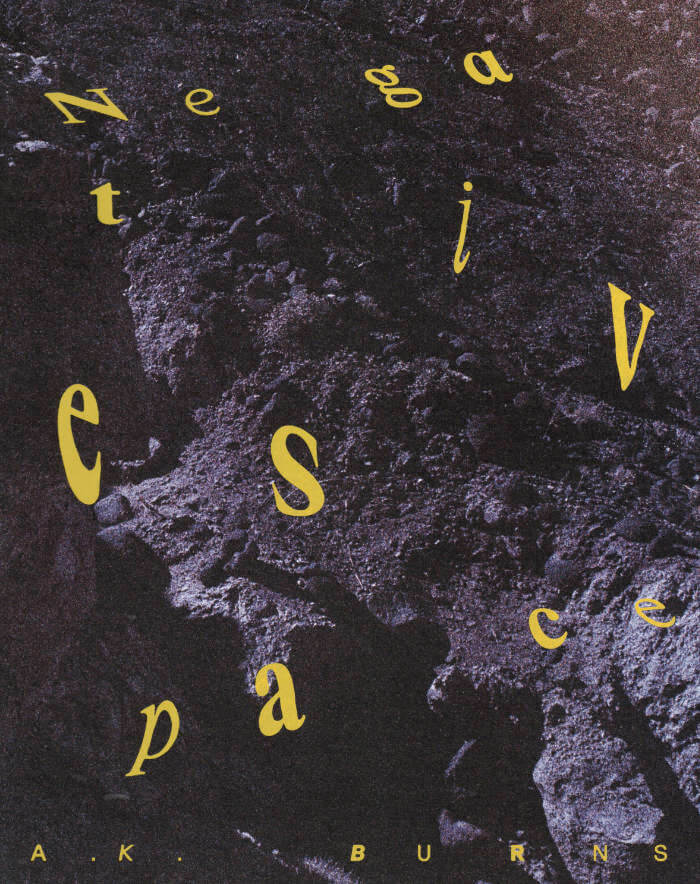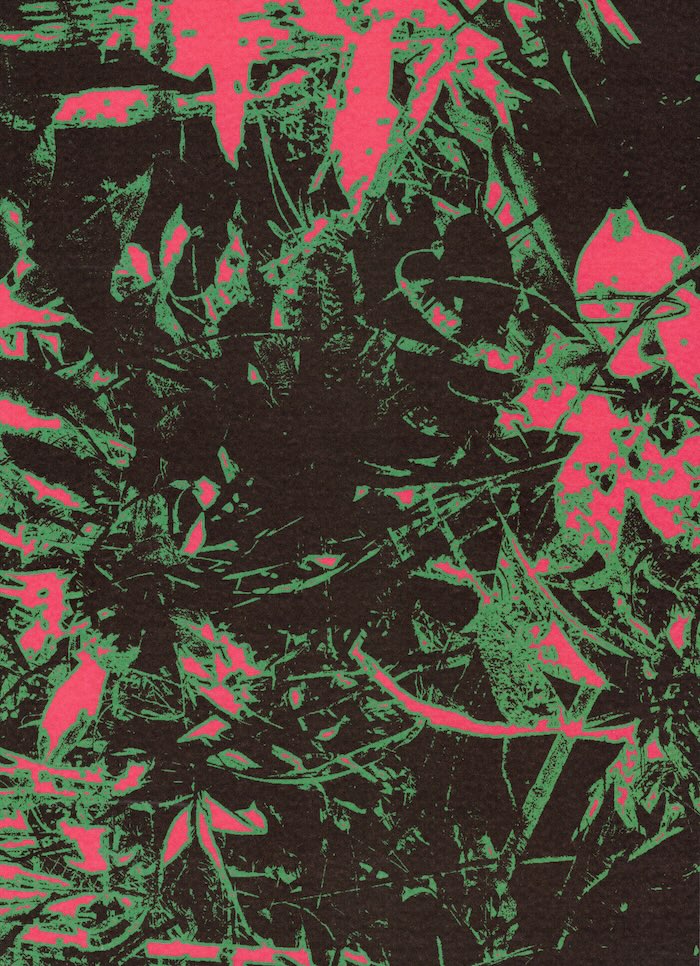
A.K. Burns: Negative Space
Chronicling an epic multimedia project 10 years in the making, A.K. Burns' first monograph grapples with climate change, community and sociopolitical agency
Deploying science fiction, material feminism, eco-anarchism, queer theory and technoscience, New York-based artist A.K. Burns (born 1975) explores the fraught relationships between humanity and nature in an epic multimedia work, Negative Space (2015-23). This nonlinear allegory provokes questions about marginalized bodies, environmental fragility and technology. Developed as a cycle of four video installations, Negative Space imagines new relationships to the spaces we occupy and the impact of our bodies in these spaces through imagery, research and critical and creative writings. Set in a speculative present, the tetralogy envisions a new materialist cosmology wherein hierarchical relations are transformed.
Edited by Karen Kelly and Barbara Schroeder
Text by CA Conrad, Mel Y. Chen, Aruna D’Souza, Megan Hicks, Simone White, and a conversation between the artist and Karen Archey







